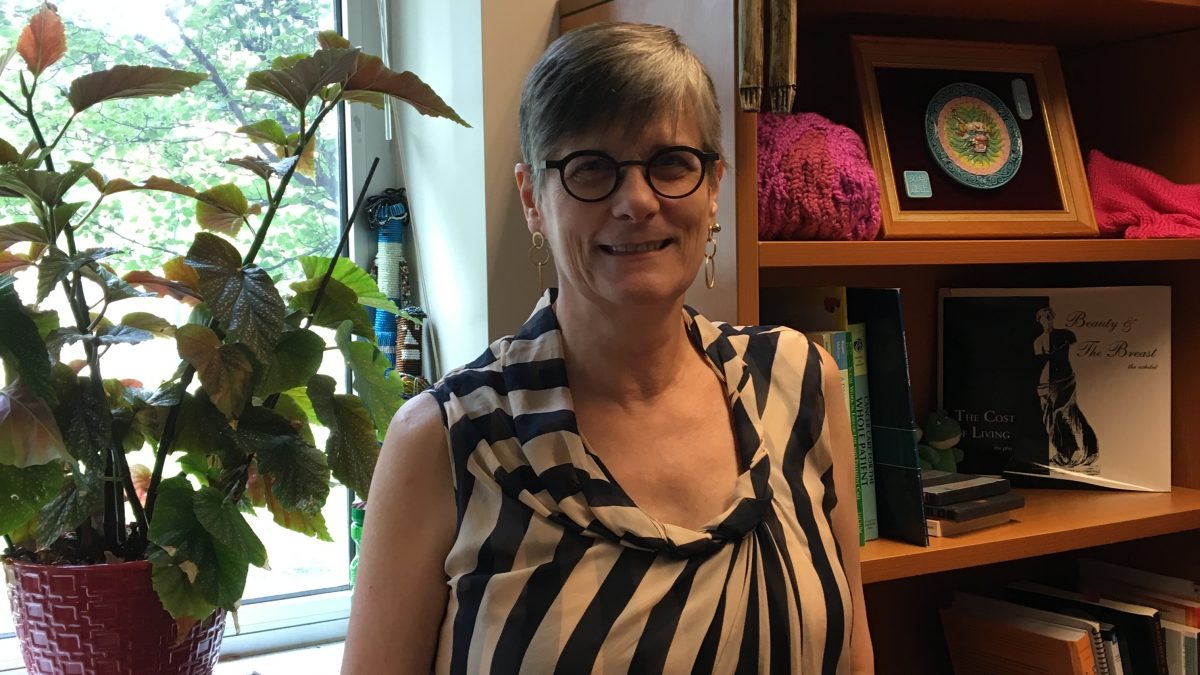In our third installment of the series “How UC Researchers use the Open Science Framework”, we hear from
Karlynn BrintzenhofeSzoc, CAHS-School of Social Work, Associate Professor
Research Project Description or statement about your research interest:
I am working with a group of trans-disciplinary researchers who focus on the current state of care for older adults with cancer. It is well known that enrollment of older adults into cancer clinical trials is not proportional to the number of older adults who are diagnosed with and treated for cancer. Further there is little known about how older patients who participated in clinical trials respond to treatments. And we do not have a clear understanding of the many factors that affect their quality of life during treatment such as drug tolerance levels or best practices in coordinating their care.
Additionally, The American Society for Clinical Oncology (https://www.asco.org/) published a call to increase the recruitment of older adults into trials. One of the main recommendations they made is that journals develop policies that would involve a better reporting system that would encourage data to be analyzed and reported by age groups on efficacy and adverse effects. This change could improve clinical practice and likely improve the quality of life of older adults.
Our research project will take a snapshot of the literature and focus on Phase III therapeutic cancer clinical trials. We are conducting a systematic review of the literature for the time frame of July 1 2016 to June 30 2017. One of the data points we are gathering is inclusion and exclusion criteria which have an upper age cutoff. Already we see in the literature that there is an inconsistency in age reporting. Also, it is difficult to find reports where the results are stratified for older adults. And in order to set best practices, we believe researchers need to pay more attention to older adults when reporting outcomes.
This group of researchers and clinicians are a part of the Cancer and Aging Research Group (mycarg.org) which is a national advocacy group that funds and supports research to provide better coordinated care for older adults with cancer.
Why did you chose to use the OSF to organize your research/projects?
We started off using another workflow to assign readings to reviewers and it was a disaster in record keeping. We couldn’t figure out what articles had been assigned to reviewers, and if and when they had completed their assigned readings.
Then I discovered the Open Science Framework (through an email from the library) and switched to using the OSF. It was very easy to transition our workflow to this system. We could set up projects in the OSF, connect with the reviewers by inviting them to be collaborators, and share their tasks through the OSF. We created files (or components in the OSF) for each person. We loaded their reading assignments into the project and were able to track when they opened the files. So we knew what was getting done and what still needed to be addressed. It was very easy to use, especially for collaborators with virtually no training needed. There was no angst or pain with the system. It is also very easy to add and remove collaborators.
What about the OSF makes this tool a good choice for your project management (i.e. specific function of the OSF)?
I LOVE the notification features. We can track that the work is being done by the reviewers assigned. And it is easy to extract the data from a collection document in the OSF into our REDCap data management system.
Additional comment for the post that you are willing to share:
A second group of clinicians and researchers who are members of the Multinational Association of Supportive Care in Cancer (MASCC; mascc.org) are starting another project using the OSF. A CARG clinicians, who is leading this second project that is looking at shared decision making with older adults with cancer, has also decided to use OSF for the project.
The OSF has a lot of potential. I personally could use it more, but would want additional training to understand all the functionality of the OSF. And I love that the platform is accessible anywhere.
Currently our project is only accessible to collaborators, but it will be easy to open components of the project if we choose or need to share some of our findings.

